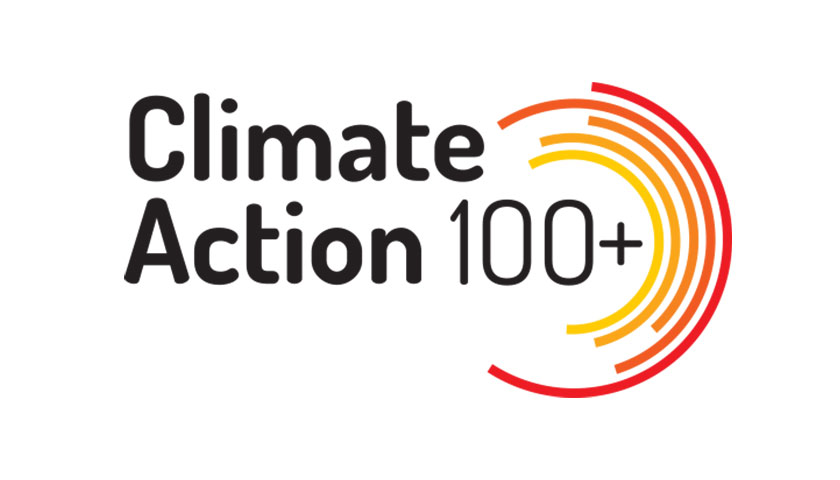This joint statement has been developed between Royal Dutch Shell plc (Shell) and a leadership group of institutional investors on behalf of the global investor initiative: Climate Action 100+ (CA 100+). The investor engagement with Shell has been led by Robeco and the Church of England Pensions Board and included representatives of Eumedion (the Dutch platform for institutional investors) and the European Institutional Investors Group on Climate Change (IIGCC)2. APG on behalf of ABP, the Environment Agency Pension Fund (EAPF) and the Universities Superannuation Scheme (USS) have also been active participants.
Introductory comments by the Institutional Investors:
As long-term institutional investors who manage retirement savings and investments for millions of people, we believe climate change to be one of the greatest systemic risks facing society today. We believe comprehensive and effective government policy is necessary to drive change across the global economy. All parts of society have a role to play, not least energy-intensive, publicly listed companies. Any gaps, weaknesses or delays in climate change policies and responses will increase the risk to society’s ability to limit climate change to well below 2°C above pre-industrial levels in accordance with the Paris Agreement on climate change. Failure to act may also increase the cost of adaptation as well as the physical risk posed by climate change to society and our investments.
In 2017, Shell was the first international oil and gas company to introduce an ambition to reduce the Net Carbon Footprint of the energy products it sells, expressed as a carbon intensity measure, taking into account their full lifecycle emissions. These include emissions from its own operations, from the use of the energy products by its customers, as well as those generated by third parties in its supply chains. In developing its Net Carbon Footprint ambition, we believe Shell has taken a significant leadership position within the oil and gas sector. As investors, we are strongly supportive of this approach.
We also note Shell’s other important actions on climate change such as convening the Methane Guiding Principles, announcing a methane emissions intensity target, and the important role the company has played in promoting the implementation of the Taskforce on Climate-related Financial Disclosures (TCFD) recommendations, and in working with the Oil and Gas Preparers Forum and the World Business Council for Sustainable Development (WBCSD) to strengthen the sector’s response in this regard.
As institutional investors and in the context of the Climate Action 100+ initiative, we have engaged with Shell to further build on its ground-breaking Net Carbon Footprint ambition by setting short-term Net Carbon Footprint targets consistent with this ambition and integrating these targets into executive remuneration.
As long-term investors, we share the desire of the Board and management of the company to seek a positive future for the company which is aligned to the goals of the Paris Agreement on climate change. This has been our motivation for this engagement.
Introductory comments by Shell:
Tackling climate change is a multi-generational challenge for society, including businesses, governments and consumers. Shell fully supports the Paris Agreement and believes that society has the scientific and technical knowledge to achieve a world where global warming is limited to well below 2°C.
Shell recognises that it has an important role to play and intends to respond to society’s needs for more and cleaner energy. Shell has three strategic ambitions:
- To provide a world-class investment case by growing free cash flow and increasing returns, all built upon a strong financial framework and resilient portfolio;
- To thrive through the energy transition by providing the mix of products its customers need as the energy system evolves; and
- To sustain its societal licence to operate by being a responsible energy company that operates with care for people and the environment.
Investing in assets that will remain financially resilient in the energy system of the future is key to delivering a world-class investment case to Shell’s investors. Shell aims to grow its business in areas that will be essential in the energy transition, and where it sees growth in demand over the next decades. Shell believes its Net Carbon Footprint ambition has positioned the company well for the future as it underpins and enables the execution of all three of its strategic ambitions.
Shell appreciates the long-term relationship with its institutional investors and acknowledges the positive role that can be played by ongoing engagement. The dialogue with, and input from, investors has always been very constructive. Shell acknowledges and agrees with the importance attached by its investors to the issue of climate change, and also agrees that Shell’s future success is contingent on its ability to effectively navigate the risks and the opportunities presented by climate change.
Joint Statement:
In light of the above, we, the Institutional Investors and Shell, are pleased to jointly announce the steps below that Shell has decided to take in order to demonstrate further industry leadership and alignment with the goals of the Paris Agreement on climate change. As Institutional Investors, we are strongly supportive of the company in taking these important steps.
1. Public short-term Net Carbon Footprint targets
- Shell has stated a long-term ambition to reduce its Net Carbon Footprint associated with the energy products it sells in step with society’s drive to meet the goals of the Paris Agreement. Shell aims to reduce its Net Carbon Footprint by around half by 2050 and by around 20% by 2035 as an interim step.
- To operationalise this long-term ambition, Shell will start setting specific Net Carbon Footprint targets for shorter-term periods (three or five years). The target will be set each year for the next three- or five-year period. The target setting process will start from 2020 and will run to 2050.
2. Targets linked to remuneration
- Taking into account the perspectives gained through its engagements with shareholders and other relevant stakeholders, Shell will incorporate a link between energy transition and long-term remuneration as part of its revised Remuneration Policy, which will be subject to a shareholder vote at the 2020 Annual General Meeting (AGM).
- If approved at the AGM, the policy will include a Net Carbon Footprint-related measure, as well as other measures, to have a balance of leading and lagging performance metrics over a three-or five-year performance period. The measures for each performance period will be set on an annual rolling basis at the time of the award and will be subject to the annual remuneration target-setting process as well as to the final plan design. The measures and targets will evolve as time progresses over the years to 2050.
- The final plan design is being discussed with shareholders, including details relating to the appropriate remuneration structure and appropriate measures and metrics.
3. Review of progress
- On an annual basis, Shell will publish an update on its progress towards lowering its Net Carbon Footprint. In the initial years, this disclosure will be made in the Sustainability Report, but with a commitment, in line with TCFD best practice, to integrate this into the Annual Report and Form 20-F as appropriate.
- Shell will seek third-party assurance of its reported Net Carbon Footprint and assurance statements will be published on the Shell website. Shell will also continue to work closely with reputable institutions, such as the Transition Pathway Initiative (TPI), to help in their assessment of Shell’s progress.
- Every five years, Shell will review the updated Nationally Determined Contributions (NDCs) in line with the Paris Agreement mechanism, the updated scenarios on decarbonisation trajectories and any other developments to assess societal progress in the energy transition. The outcome of this review will be used to calibrate Shell’s ambition and pace of change in line with that of society. The first such review is currently anticipated to take place after 2022.
4. Alignment with the TCFD recommendations
- Shell has been an early supporter of the TCFD and will continue to support and promote the implementation of respective recommendations.
- Shell will continue to disclose at relevant intervals in line with the TCFD recommendations. This includes the disclosure of its metrics and targets used to assess and manage relevant climate-related risks and opportunities where such information is material.
- During Management Day 2017, Shell disclosed potential ranges of developments in parts of its existing portfolio to achieve the NCF ambition. Shell will provide transparent and relevant updates through future Shell Energy Transition reports (or any related disclosure) as Shell’s strategy evolves.
5. Corporate climate lobbying
- Shell acknowledges the “IIGCC Investor Expectations on Corporate Climate Lobbying” and recognises the importance of ensuring that its membership in relevant trade associations does not undermine its support for the objectives of the Paris Agreement on climate change.
- Shell is undertaking a review of these memberships to assess alignment with the company’s stated positions. The result of this review will be made public in Q1 2019.
- Shell will continue to track and provide information about its trade association activities on climate change-related topics, areas of misalignment and the actions taken in that regard.

